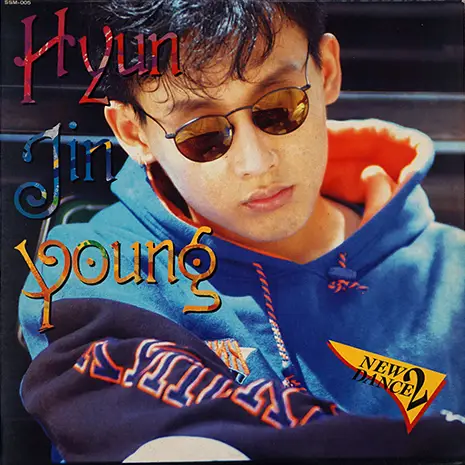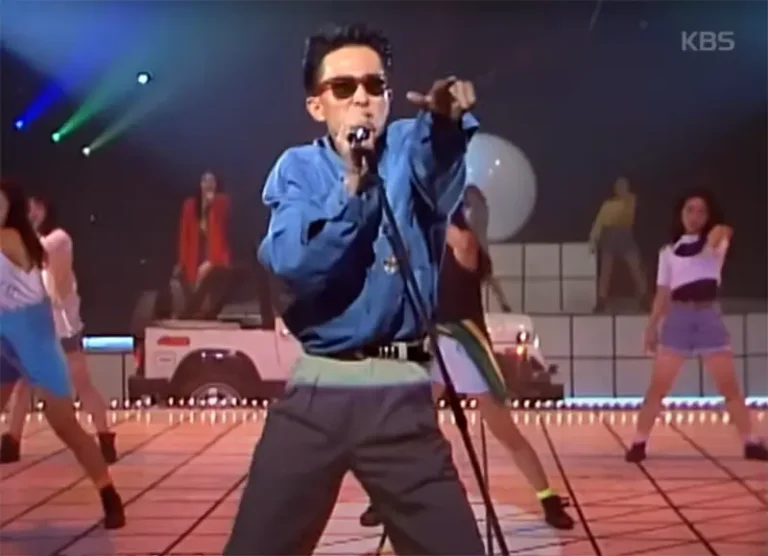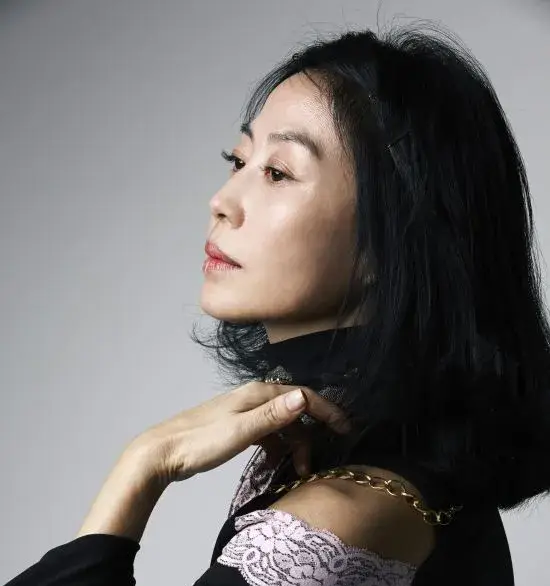
Hyun Jin-young: The Trailblazing Icon of Korean Hip-Hop and Pop
Heo Hyeon-seok, known professionally as Hyun Jin-young, stands as a foundational figure in the evolution of Korean popular music, specifically in the realms of hip-hop and dance. Born on February 3, 1971, in Seoul, South Korea, Hyun grew up in a family with deep musical roots. His father, Ho Byung-chan, was a renowned jazz pianist and the founder of the AAA (Triple A) jazz big band, which performed within the 8th US Army village in Seoul. This unique environment exposed Hyun to a rich blend of jazz, soul, and American pop music from an early age, shaping his musical sensibilities and creative ambitions.
From childhood, Hyun was drawn to the vibrant energy of music and dance. By the age of 14, he had joined “Spark,” considered Korea’s first breakdance group, marking the beginning of his journey into performance arts. His passion for music and dance was so intense that he made the bold decision to drop out of high school at 16 to pursue a professional career in entertainment. This choice reflected both his youthful confidence and his determination to break new ground in Korea’s nascent pop culture scene.
Hyun’s career took a decisive turn when he met Lee Soo-man, who would later become the founder of SM Entertainment, one of Korea’s most influential entertainment companies. At the time, Lee was searching for fresh talent to realize his vision of a modern Korean pop music industry. Hyun’s audition, where he performed the “toggichum” (Rabbit Dance), a stylized dance inspired by Western pop culture, left a lasting impression. This led to Hyun becoming the first artist signed to what would become SM Entertainment, then known as S.M. Studio, in 1989. Lee Soo-man has often described Hyun as his “first iconic singer,” underscoring Hyun’s foundational role in the development of K-pop.
Hyun debuted in 1990 as Hyun Jin-young and Wawa, a group that featured a rotating lineup of talented dancers and performers. Among the members were future stars such as Koo Jun-yup and Kang Won-rae (later of Clon), Lee Hyun-do and Kim Sung-jae (of Deux), and Sean (of Jinusean). His debut album, New Dance 1, introduced hits like “Sad Mannequin” (슬픈 마네킹), “Sexy Lady” (야한여자), and “You Are in My Unclear Memory” (흐린기억속의그대). These tracks not only became signature songs for Hyun but also helped establish him as a pioneer of Korean hip-hop. His performances were characterized by energetic dance routines, baggy pants, and a rapping style that drew comparisons to American artists like Bobby Brown and LL Cool J.
Hyun’s influence extended far beyond his music. He introduced elements of swagger, rap, and hip-hop choreography that were previously unknown in Korean pop. His innovative approach set the stage for later acts such as Seo Taiji and Boys, who would further revolutionize Korean pop music in the early 1990s. Hyun’s impact on the industry is undeniable, as he helped shape the aesthetic and musical direction of K-pop in its formative years.
Despite his early success, Hyun’s career was marred by personal struggles. In 1991, he was convicted of marijuana possession, and in 1993, faced charges related to methamphetamine use. These incidents led to multiple incarcerations and a tarnished public image, as drug use was—and remains—highly stigmatized in Korean society. Hyun later admitted that he became addicted to harder drugs after befriending a dealer while serving his first prison sentence. These challenges took a heavy toll on his career and personal life.
Hyun attempted to rehabilitate and return to the music scene, forming the hip-hop duo I.W.B.H. with Lee Tak in 1997. However, his efforts to regain his former prominence were largely unsuccessful. He released several more albums, including Wild Gangster Hip Hop-21C Hyun Jinyoung Vol.IV in 2001 and Street Jazz In My Soul in 2006, the latter marking a stylistic shift toward jazz. Despite these creative ventures, Hyun was unable to recapture the widespread acclaim of his early years.
In the years following his music career, Hyun transitioned into teaching and production. He began lecturing at RAUM, a professional music academy in Gangnam, and later became a chief producer at SidusHQ, a major Korean talent management company. These roles allowed him to share his expertise and mentor the next generation of artists. Hyun also found stability in his personal life; he married actress and entrepreneur Oh Seo-un in 2011, with their wedding ceremony taking place in 2013.
Hyun Jin-young’s legacy is multifaceted. He is celebrated as a trailblazer who brought hip-hop and modern dance to Korea, influencing generations of artists who followed. At the same time, his story serves as a cautionary tale about the pressures and pitfalls of fame, particularly in a society with strict moral and legal standards. Despite his personal and professional challenges, Hyun remains a significant figure in the history of Korean popular music. His contributions are increasingly recognized as foundational to the development of K-pop, and he continues to be referenced as an important influence by contemporary artists and industry insiders.
In recent years, Hyun has made appearances on television shows such as Mr. House Husband (2023–present), which has helped reintroduce him to a new generation of viewers. His life and career are a testament to both the transformative power of music and the enduring challenges faced by those who push cultural boundaries.
Hyun Jin-young’s journey reflects the complex interplay between innovation and adversity. As a pioneer, he helped define the sound and style of Korean pop music, paving the way for the global phenomenon that is K-pop today. His story is a reminder of the importance of resilience, creativity, and the enduring impact of cultural trailblazers.


